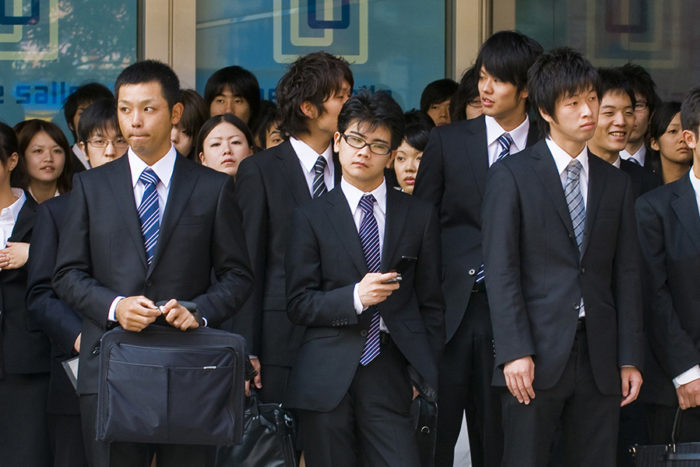Gender Inequality and the Ultimate Resistance of Women in China

The emergence of a market economy in China means women have achieved unprecedented levels of educational and professional achievement.
But they are also suffering widespread gender violence and discrimination, as well as oppressive gender norms legitimised by both the culture and authority. While women, especially young women have embraced feminist movements in their quest for social transformation, China’s traditional gender power structure remains stubborn with implicit support from a powerful government. However, this patriarchy is also facing a crisis as more and more women are consciously making autonomous decisions about their lives.
Progressive women and discrimination
China’s economic rise has come at the expense of many women, including those who were dismissed from state-owned enterprises in the 1990s, those working cheaply for the emerging processing industries, women who have been dispossessed of their land due to urbanisation, and mothers who have been abused by the family planning campaign. The progress of Chinese women is thus a story of surviving as a by-product of economic development, fraught with the influences of class, region and ethnicity.
Women make up more than half (53 per cent in 2020) of Chinese university students and graduate with better performance. They continue to maintain a high share of the paid labour force (nearly 70 per cent in 2020) and a significant share of economic contribution (41 per cent in 2015). Academia and the emerging services economy offer the greatest opportunities for women to achieve professional success. For instance, the percentage of women referred to as “senior specialists and technicians” in national statistics reached 38 per cent in 2016. Official statistics also indicate that the proportion of female entrepreneurs in the internet sector reached 55 per cent in 2019.
Many institutional barriers stand in the way of women’s advancement, for example, gender discrimination in hiring is taken for granted. Despite the government’s ban on employers knowing information about marital and maternity status in 2019, no employer has ever been revealed as receiving a penalty for non-compliance in the last three years. Despite the official statistics that the incidence of spousal violence against women has declined significantly since the enactment of the 2015 Anti-domestic Violence Law, multiple feedback from victims and civic organisations indicate that too often domestic violence is denied by the authorities, especially police and courts.
Among the “feminine duties” that the dominant Chinese culture imposes on women, one that is particularly persistent is that women should marry and have children at the “appropriately” young age and assume full moral responsibility for caregiving. Such domestic requirements work together with gender discrimination in the workplace to form a closed loop of inequality. It should be noted that culture can be very coercive especially when the government endorses it. China’s current top leader has repeatedly and publicly asked women to follow “family virtues” to maintain social stability.
Maximising the extraction of women’s intellectual and labour contributions while refusing to compensate them fairly and preserving gender power structures in the pursuit of economic development appear to be in the best interests of those with vested interests. From this perspective, gender equality in China will be perpetually delayed by those in power.
Young feminists awakening and being thwarted
Young women who are well-educated, have access to a wide variety of information, and earn an independent living in urban areas are the most incensed by gender inequality and the most able and willing to resist conforming to gender norms in their personal lives. This is the case despite the fact that many of them also rely on consumption, appearance, and heterosexual relationships for self-esteem. Numerous women have described the “moral shock” that led them to identify with feminism: the realisation that society was not treating them with the fairness they expected and deserved. Similar to what has been observed in other countries, the immediate cause of the rise of the feminist movement in China was not only the severity of gender oppression, but also the tension between oppression and the growing awareness of women’s autonomy. Moreover, if women’s demands could have been met through institutional channels, the feminist movement might not have grown as much as it has in recent years.
In a patriarchal society, young women lack the chance to speak for themselves; however, they have come together on the internet to create an alternative collective discourse and activism. The dependence on the internet is also a result of restrictions on offline activities and a lack of resources for feminist activism. In 2010, spontaneous feminist sites emerged on China’s earliest social media, and by 2018, when the #MeToo movement took off, feminist-initiated debates were able to attract tens of millions of hits on the most popular social media platforms.
Although the origin and central focus of the #MeToo movement has always been sexual harassment in education and the workplace, it actually encompasses a wider range of issues, along with the leadership of young women and intense feminist critiques. In the first month of the #MeToo movement in China, nearly 10,000 students and graduates petitioned universities for sexual harassment prevention mechanisms, and more than 40 professors and public figures were publicly exposed for sexual harassment in the first year of the movement. The #MeToo movement has been effective in promoting institutional progress, especially in the field of education. The Ministry of Education prohibits professors from engaging in intimate relationships with students, and some professors have lost their jobs as a result of sexual harassment.
The greater achievement of the feminist movement in China, however, is that it has unsettled the public discussion in China as never before by mainstreaming the need for society to recognise and respond to women’s demands, even if the response does not favour women. Participating in online public discussion exposes people to a polarised and violent environment, which is especially cruel to women. Ironically, at a time when the Chinese feminist movement had not yet delivered many noteworthy outcomes, it has already sparked an internet-enabled counter-movement. The active mass base of the counter movement is comprised of young men who feel threatened and deprived by the advancement of women. As a result of the online backlash against feminists, the term “gender antagonism” became popular on the Chinese internet in late 2020, detracting attention from feminist advocacy.
It is government sectors that authorise and allow common misogyny, posing a significant threat to the feminist movement. The Communist Youth League Central Committee, the youth organization of the Chinese Communist Party, has publicly accused feminists of “making trouble,” “infinitely magnifying rights,” and “cyber cancer.” Such attacks not only harm the reputation of feminism, but also signal its delegitimization and mobilise its expulsion from legitimate public space. From 2018 to 2021, major internet platforms have continued to ban some feminist organisations and activists and censor “radical” feminist expression with increasing severity and depth. Offline, feminists advocating for women’s rights have also been subject to harassment, intimidation, and surveillance. These actions indicate that the potential for feminist advocacy to affect social change is being thwarted.
Contradictions on marriage and childbirth
The struggle between women and patriarchal traditions in China is bringing a heightened focus to the role of women within the family. In the midst of an intense debate among feminists, some have advocated publicly for “no marriage, no children,” arguing that women should not embrace marriage, childbirth, and caregiving. There is a growing number of women who are suspicious and even fearful of marriage and childbearing who are not feminists. The age at which Chinese women marry for the first time has risen to 26 in 2020, a significant increase from the previous age of about 24 years. The annual number of marriages in China is also gradually declining. China’s total fertility rate fell to 1.3 in 2020 and reached a new low in 2021 after the elimination of all fertility restrictions.
The essence of the reluctance to marry and have children is women’s conscious or unconscious nonviolent non-cooperation with patriarchy, which may appear to be passive resistance but has significant ramifications given the significance of women’s sex, emotions, fertility, and care provision in maintaining the family and social structure. Besides the attacks on feminists for aiding women, a variety of other measures have been implemented to coerce women into marriage or prevent their withdrawal. In 2017, the Communist Youth League Central Committee established a “Marriage Department” to “assist overage youth in locating mates”. One study revealed that, beginning in the 2000s and accelerating after 2010, Chinese courts have become less inclined to grant divorce petitions filed by women, even in cases of domestic violence, separation, or missing spouse. The National People’s Congress insisted in 2021 that the Civil Code include a “cooling-off period” for divorce, in response to widespread opposition from women. Since the majority of divorce petitions are filed by women, it is suspected that this provision is primarily intended to restrict women’s right to divorce. It appears that the restrictions on divorce have been a double-edged sword, as they have, on the one hand, significantly reduced the number of divorces, but on the other, have led to an increase in the number of individuals who choose to remain unmarried.
It is already anticipated that a declining fertility rate will result in a shrinking labour force, threatening China’s economic development and social welfare. Funding from the government has encouraged scholars to investigate the fertility intentions and motivations of women. But what has been omitted from the discussion of fertility intentions is that inaction on gender inequality, refusal to negotiate change, and increasingly authoritarian controls have severely frustrated women. To date, none of the real fertility incentives implemented by governments at all levels have been effective enough to influence women’s propensity to have children. At the same time, the possibility that the government will force women to have children, either directly or indirectly, such as by restricting birth control and abortion, as many fear, has not yet materialised.
Is it possible to demand more rights for women using childbirth as leverage? So far, the calls to do this have had little effect. Negotiating with women or releasing substantial resources to them can lead to an imbalance in the power structure, which the government would not like to see. And on the other hand, using their bodies as bargaining chips is increasingly not an option for women. As a result of the difficulty of the feminist movement as a whole, women’s autonomous decisions to not have children or to have fewer children may pose the greatest future threat to the patriarchal state.
Women dismantle the system of inequality
Many have demonstrated that gender equality is crucial to economic and social development. What is often overlooked, however, is that gender inequality may otherwise be crucial to specific economic, social, and political models. Chinese women’s paid and unpaid labour contributions have been enormous for decades in boosting the economy, making up for social welfare shortfalls, and preserving family and social stability. The orientation of gender inequality as an institution in China is to maximise the extraction of benefits while avoiding structural change through unequal treatment of men and women. In light of this, it is understandable that China has not yet made encouraging gender equality strides when celebrating the “rising of a great nation.” Many Chinese women have joined the feminist movement out of rage and resentment, but the movement is too weak and impoverished to transform the system. However, the collective and individual struggles of women are likely to be lengthy, and non-cooperation may be their last resort for dismantling the system of inequality.
Lü Pin is a Chinese feminist activist and columnist. She has been involved in organising and advocating for women’s rights in China since the late 1990s. She founded Feminist Voice, China’s first and most influential independent feminist media. She is currently a PhD student majoring in Women and Politics at Rutgers University, the US.













